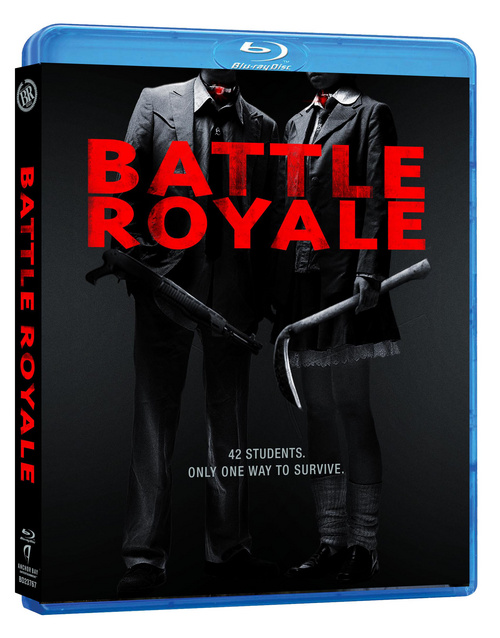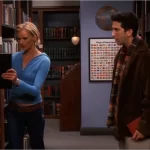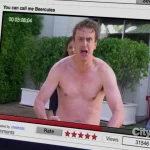Home Video Hovel- Battle Royale
 Cleverly making its Blu-ray debut just three days before Gary Ross’ big-budget bestseller adaptation The Hunger Games, Kinji Fukasaku’s Battle Royale is definitely moving to solidify its we-were-here-first credibility. The inevitable slew of comparisons between this 2000 Japanese film and Suzanne Collins’ young adult book phenomenon must certainly have helped the former’s sales. However, as those familiar with both works know, the similarities are almost entirely facile. It would be difficult to pick which is the better film but, luckily, it would also be pointless. They’re both great and, no matter how you feel about Katniss Everdeen, you owe it to yourself to check out Battle Royale.
Cleverly making its Blu-ray debut just three days before Gary Ross’ big-budget bestseller adaptation The Hunger Games, Kinji Fukasaku’s Battle Royale is definitely moving to solidify its we-were-here-first credibility. The inevitable slew of comparisons between this 2000 Japanese film and Suzanne Collins’ young adult book phenomenon must certainly have helped the former’s sales. However, as those familiar with both works know, the similarities are almost entirely facile. It would be difficult to pick which is the better film but, luckily, it would also be pointless. They’re both great and, no matter how you feel about Katniss Everdeen, you owe it to yourself to check out Battle Royale.
A class of middle school students on a field trip is gassed. When they awaken, they find themselves on an island where they have been outfitted with electronic collars. Their former teacher, Kitano (Takeshi Kitano), explains to them that their class has been selected at random to participate in this year’s Battle Royale. Each student will be handed an item (ranging from a shotgun to a fork) and the class will have three days on the island to kill each other until only one victor remains. Should they refuse to participate, their collars will explode. Though in many ways a true ensemble piece, our main characters are Shuya, a boy still grieving after his father’s suicide, Noriko, the object of his teenage crush, and Kawada, a new student no one has gotten to know.
All this, based on a 1999 novel by Koushun Takami, is visualized by director Kinji Fukasaku. Battle Royale was to be his final film. He died shortly into production on its sequel (which is included on the four disc special edition release). He was 70 when the movie was released but had made a name spending the previous decades making violent films in Japan. He may be best known to American audiences (apart from BR, that is) for co-directing the Japanese sequences in the 1970 Pearl Harbor film Tora! Tora! Tora! As dry and ultimately unsuccessful as that one is, it’s not hard to imagine that he was responsible for its more exhilarating action sequences.
In Battle Royale, though, the director gets to flex more than just his action muscles (though those do get a glorious workout, too). Contained within the running time is not simply gore-splattered mayhem but a smart and surprisingly funny satire about how the structures of school shapes the social lives of teenagers in general as well as perhaps commenting on Japanese teenagers specifically. The numerous reports and studies one can find about the pressure to excel in education in Japan color the proceedings in this film, leading the viewer to contemplate what the burden of expectation can do to young people or cause them to do to each other. If a society places all its adoration in the ones who do the best, what does that do to the ones who fell short?
If that theme threatens to make the film a purely heady exercise, the screenplay (by Fukasaku’s son, Kenta) rectifies that by expertly evoking the bittersweet anxieties of being a teenager, a person with a foot in the child and the adult worlds but uncomfortable in both. The extreme violence that made the film so controversial upon its initial release in Japan is juxtaposed – sometimes poignantly, sometimes hilariously – with the crushes and petty jealousies of children.
On the adult side, the film is aided enormously by the presence of Takeshi Kitano, an actor and director who practically holds the trademark on the blend of shocking violence with quiet and bizarre comedy. Here, as in his best performances, he uses his immovably deadpan face not only for laughs but for terrible sadness as well. If it’s true that the best villains are the ones with which you most sympathize, he gives us a bad guy for the ages here.
Perhaps the sequence that perfectly encapsulates the film is one that comes a little over halfway through. A group of students have taken refuge in a lighthouse. Despite being only a day or so from certain death, they’ve achieved an almost idealized representation of domesticity. Essentially, they are playing house. Unavoidably, though, tiny instances of backbiting and envy mount. Step by irreversible step, the scene becomes a dark farce and then a blood-soaked massacre before resolving in a moment of heartbreaking despair. Like Battle Royale as a whole, it’s perfectly repulsive and perfectly beautiful.




























Very fine review, and a very disturbing film. I remember watching it with a friend who laughed the whole way through though, which to me was strange but I get where he’s coming from.
The end of the review repeats twice though?
Thanks! Fixed.
– David